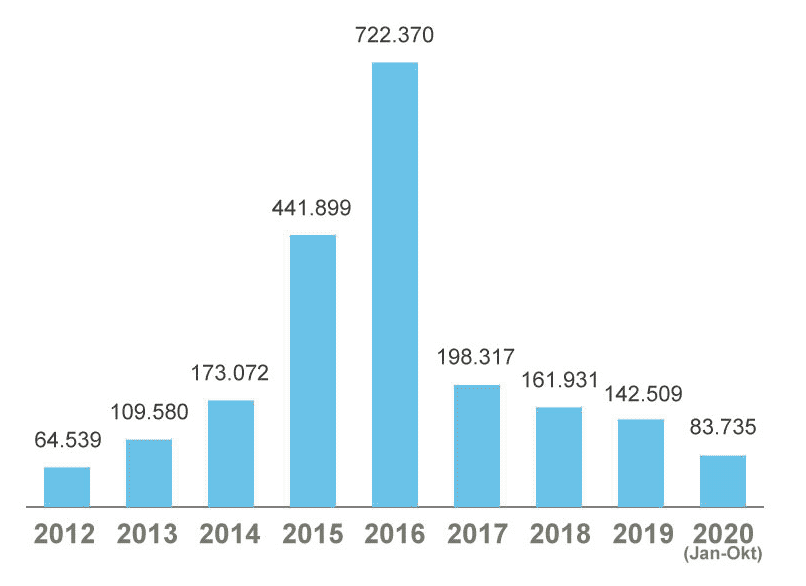Promoting the integration of refugees into the labour market
Since 2015, approximately 1.75 million applications for asylum have been filed in Germany (BAMF, Asylum Figures, October 2020). Many of these people, whom we grant humanitarian protection from war, displacement and political persecution, will stay in Germany for a long time or forever. A job with a secure income is the central starting point for their integration. It is therefore important to start quickly with integration into the labour market and thus avoid the mistakes of the past. However, expectations should also be realistic: The labour market integration of refugees takes time.

©AdobeStock Daniel Ernst
Active engagement of the economy for the integration of refugees into the labour market
Promote labour market integration, provide rapid clarity on right to stay
Targeted strengthening of language support and access to education for refugees
The acquisition of German language skills is of central importance for the integration of refugees and their later job opportunities. Crucial for successful learning of the German language is target-group-oriented, high-quality and sufficient language support. With a combination of language and orientation courses, which are intended to prepare for life in Germany, the integration courses form the first building block here. It must be ensured that sufficient capacities are available for the integration courses, especially in rural areas, and that the courses begin promptly after entry. The targeted expansion of job-related language courses, which is to build on the integration courses, is the next building block in order to further develop general language skills and learn industry-specific technical language. Corona-related course interruptions must be made up for as quickly as possible or - as far as possible - supplemented by virtual formats.
The basis for integration policy should be the "principle of support and demand": Participation in the integration course must therefore be obligatory. After all, in addition to offers to the immigrants, integration also means that the host society clearly formulates expectations. In addition to learning the German language, it is essential that refugees recognise the values of democratic society and the principles of the rule of law, equality and tolerance.
Children and young people must be integrated into the education system at an early stage. Daycare centres, schools, vocational schools and education centres must be equipped with the necessary resources, educators and teachers. What is also necessary is a nationwide compulsory schooling after three months of residence and language support that already begins in the initial reception facilities.
Ensuring legal and planning security in training for better integration opportunities
Since the majority of refugees are under 30 years old, they are still at the beginning of their professional life. Their young age is an opportunity, as many refugees are eligible for dual vocational training. In this way, their qualifications can be developed in vocational school and combined with practical experience from everyday working life. For employers, it is important that trainees can complete their vocational training and cannot be deported, for example. The training toleration (so-called 3+2 regulation) for rejected asylum seekers and tolerated persons significantly improves the chances of integration into training and ensures that training that has been started can also be completed. A nationally coordinated and transparent application practice of this regulation is crucial in order to create effective legal certainty for training companies and trainees.
For many young people - refugees as well as natives - the funding opportunities of the Federal Employment Agency are essential to support the path to (dual) training. The opening up of the instruments for training support is therefore a clear step forward. It is also important to have continuous, individual support before and during the training or in-service qualification (e.g. via partial qualifications) by a "caretaker" who acts as a central contact person - also for the employer.
Lasting solution only possible on a pan-European basis
PDFs and links on the topic
Facts and figures
Development of asylum application figures since 2012, Source: BAMF, Asylum figures, October 2020









